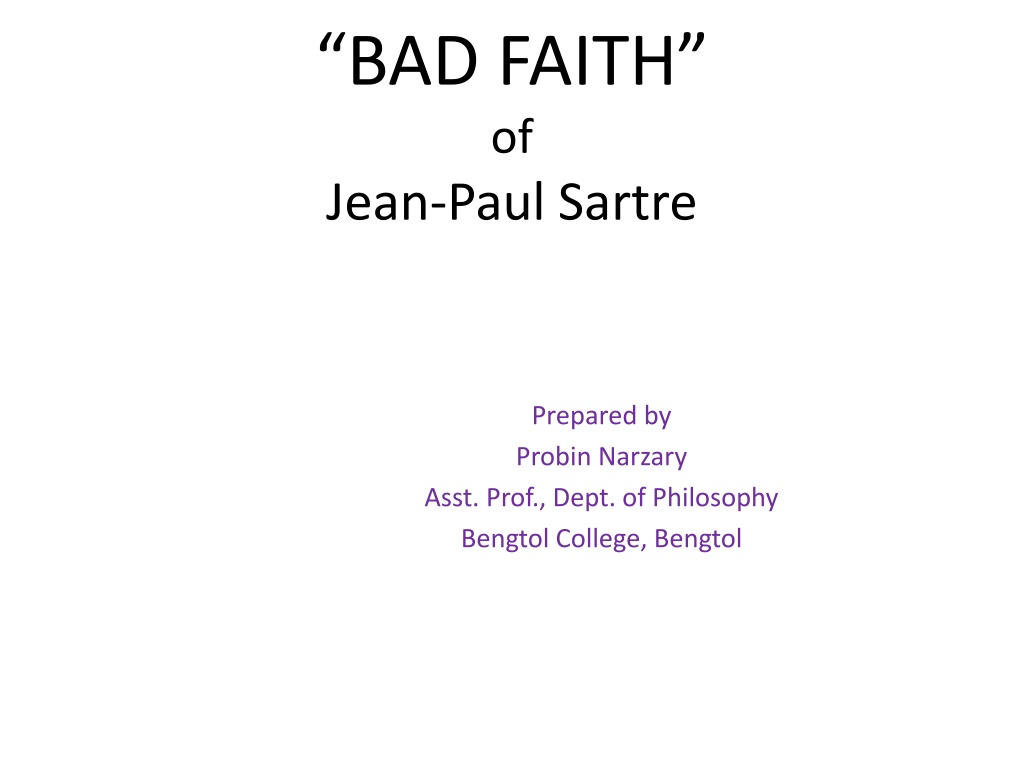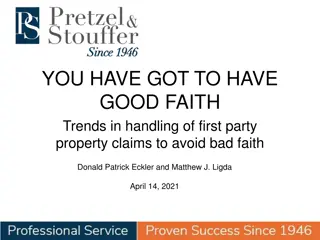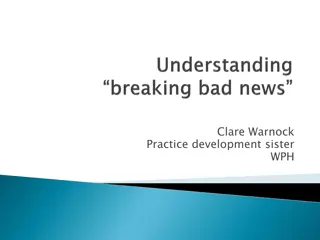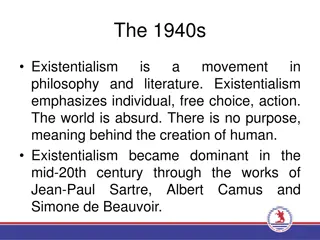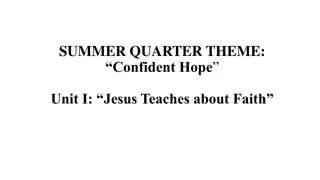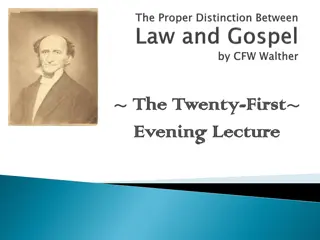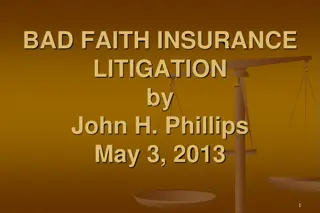Understanding Bad Faith in Jean-Paul Sartre's Existentialism
Sartre's existentialism centers around human freedom and responsibility, emphasizing the importance of personal choice and authenticity. The concept of bad faith arises when individuals evade their responsibility or deceive themselves, hindering their true self-expression. Sartre warns against inauthentic existence, urging individuals to confront their choices and embrace the uncertainties of life to live genuinely.
Download Presentation

Please find below an Image/Link to download the presentation.
The content on the website is provided AS IS for your information and personal use only. It may not be sold, licensed, or shared on other websites without obtaining consent from the author. Download presentation by click this link. If you encounter any issues during the download, it is possible that the publisher has removed the file from their server.
E N D
Presentation Transcript
BAD FAITH of Jean-Paul Sartre Prepared by Probin Narzary Asst. Prof., Dept. of Philosophy Bengtol College, Bengtol
BAD FAITH of Jean-Paul Sartre Sartre s existentialism is a theory of Human Freedom. Sartre made clear that freedom is necessary for man to succeed in life. Our actions comes from ourselves and we are ultimately responsible for our actions. For Sartre any attempt to skip from responsibility is bad faith.
There is no meaning or purpose of lives other than what our freedom creates. The responsibility of building one s future is in one s hands. Therefore, we must rely on our own resources. But the future is uncertain so one has no escape from anxiety and despair. Sartre s existentialism does not aim at plunging us into despair: its final goal is to prepare us through anguish abandonment and despair for a genuine life. So basically it concerned with the human condition as a complete form of choice.
Instead of doing that- People try to make other things responsible like- circumstances, God, faith etc. One is in Inauthentic existence, Sartre calls it Bad Faith. Procrastination is a type of Bad Faith Avoiding the decisions is Bad Faith If there is a decision, which is really of a great importance one should not postpone it.
Sartre talks of two ways of Bad Faith: Example: 1. One is playing the role . Example of a waiter in a restaurant. A Waiter is a caf employed for 5-6 hours, with personal outfit or mask of waiter which he is not. Water takes his role seriously and forgets that he is a real human beings and a waiter is a part time job. He changes his personality and starts playing role of waiter. So most of us, assume the role which is assigned to our self by society. We become prisoners of image and forget our real being, our creative choices.
Example: 2. The second way is treating oneself as material thing . For example- a person have to be a part of swimming competition. That person is aware about the fact that he is not well and suffering from mild fever. Yet he do swimming and while shivering he says that water is extremely cold. This self deception is nothing other than bad faith. The speaker is telling lie to oneself.
Course: Sartres Existentialism Class: BA 5thSem Honurs Prepared by Mr. Probin Narzary. Asst. Prof. Dept. Philosophy. Bengtol College, Bengtol.
